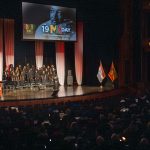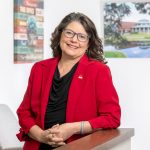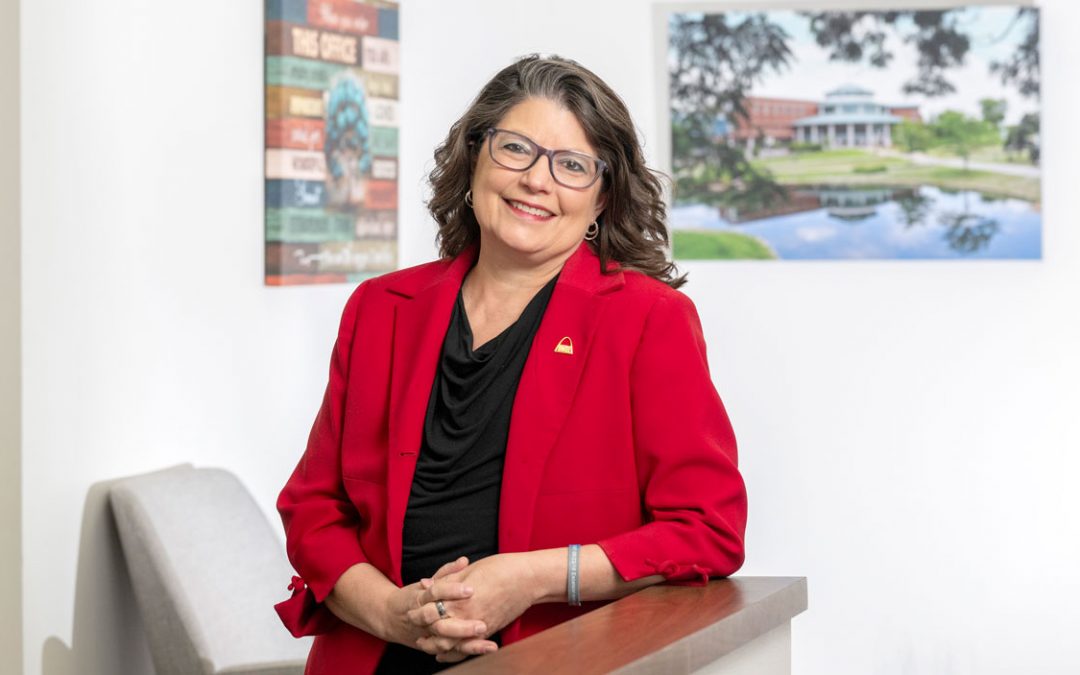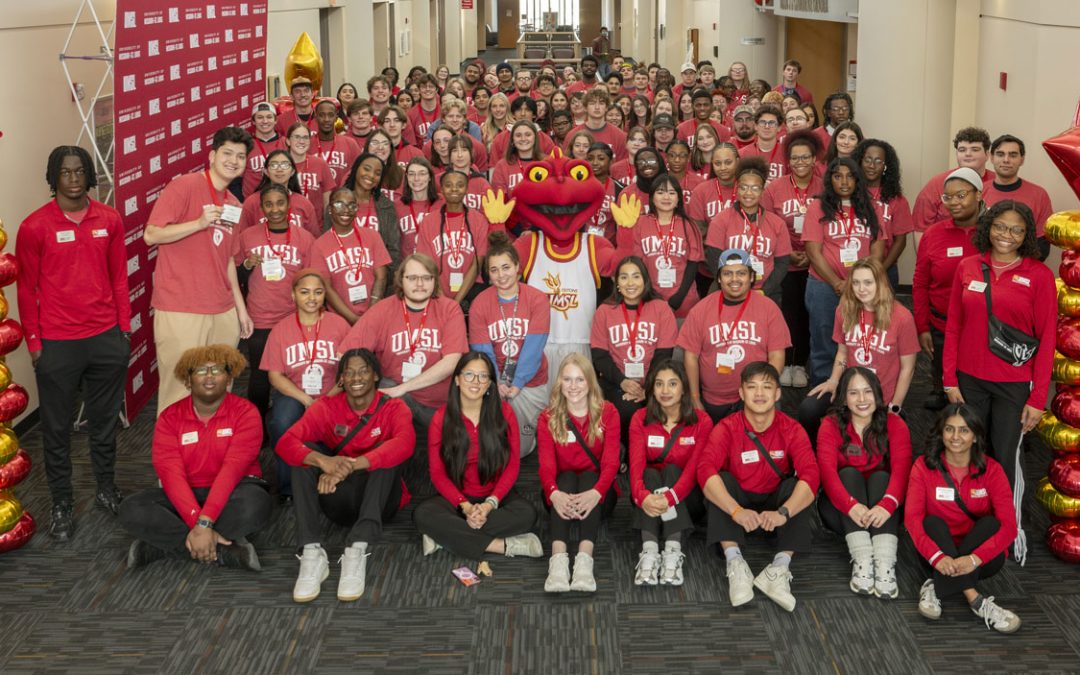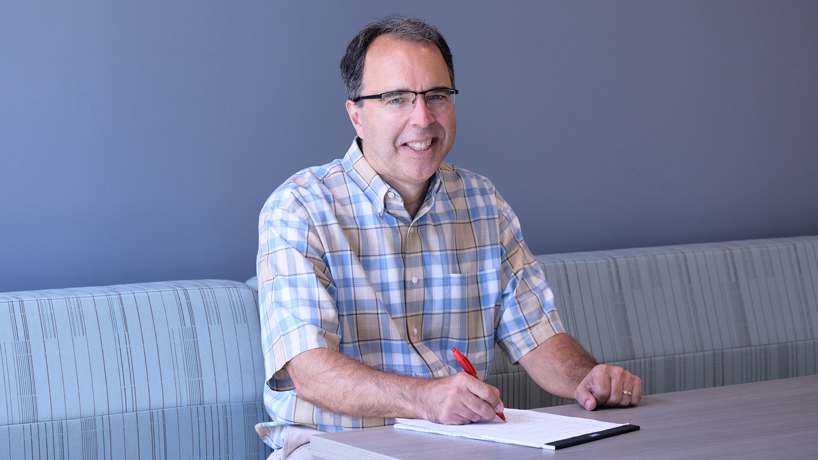
Professor of Accounting Greg Geisler received the 2017 Montgomery-Warschauer Award from the Financial Planning Association. Now in its sixth year, the award honors the paper published in the Journal of Financial Planning that provided the most outstanding contribution to the betterment of the profession in the preceding year. (Photo by August Jennewein)
Pay down debts. Invest the maximum in retirement accounts. Develop an emergency fund.
The number of suggested wealth-maximizing actions can be difficult to sift through and even more challenging to follow concurrently. So what should be done and in which order to increase wealth and lead to financial freedom sooner?
As a traditional first step, many financial planners advise clients to contribute enough into a 401(k) to achieve the maximum employer match. Greg Geisler, professor of accounting at the University of Missouri–St. Louis, challenges this model, urging financial planners to initially consider the benefits of health savings accounts.
In a Journal of Financial Planning article, Geisler proposes a rank ordering to fund investment strategies for those eligible to contribute to an HSA. Regardless if an employer’s 401(k) match is 25, 50 or 75 percent, Geisler finds situations where HSAs can increase wealth by a greater margin.
HSAs are often noted for their triple tax benefits – contributions are not subject to federal or state income tax, investment earnings are tax-free and account owners can make tax-free withdrawals for qualified medical expenses. However, many overlook these accounts as an investment vehicle.
Geisler proposes the following actions: “First, both contribute the maximum to an HSA and contribute enough to a 401(k) to get the maximum employer match. If money is still available, next, pay down high-interest-rate debts. If money is still available, next, contribute to a 529 account if funding future higher education costs of a loved one is important.”
These findings caught the attention of a number of national media outlets including the Wall Street Journal, Consumer Reports, CNBC and Money Magazine. Geisler’s work also received the Montgomery-Warschauer Award, which honors the paper published in the Journal of Financial Planning that provided the most outstanding contribution to the betterment of the profession in the preceding year.
“Dr. Geisler has provided the financial planning community with an eye-opening analysis of the power of health savings accounts to maximize client wealth,” said Dave Yeske, an editor for the Journal of Financial Planning. “An important new tool has been added to the financial planner’s toolkit as a consequence of this insightful analysis.”
Winners are selected based on nominations by the journal’s editorial staff. Geisler will formally accept the award in October at the 2017 Financial Planning Association Annual Conference. The FPA will also make a $1,000 charitable contribution in Geisler’s honor to his entity of choice – the UMSL accounting department.
During the past decade, Geisler has published more than a dozen articles about the intersection of taxes and financial planning in a number of trade journals. Also, he has won the Governor’s Award for Teaching Excellence and the Chancellor’s Award For Excellence in Teaching.
“I’m grateful to UMSL’s College of Business Administration for allowing and positively recognizing this type of practical research,” Geisler said. “There are many universities where taxes and financial planning research is not valued or is not credited, but it is clearly research that can help the financial health of many people.”




